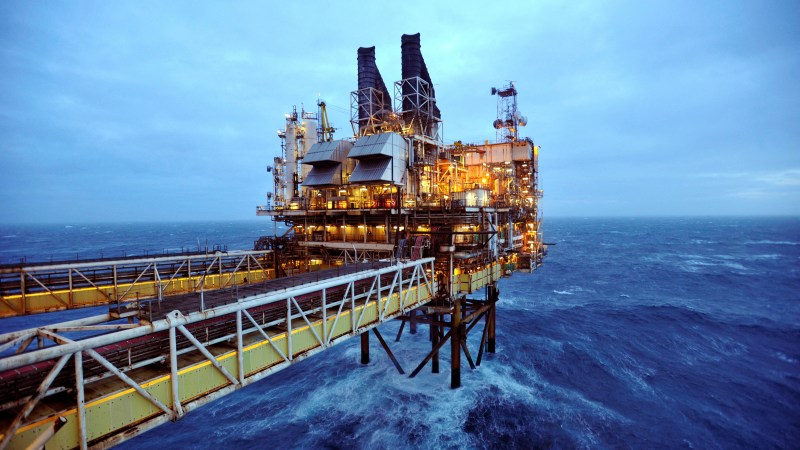Switch to New York listing ‘not on the agenda’, says BP chief
The boss of BP has said that switching the energy giant’s listing from London to New York is “not on the agenda”, despite the FTSE 100 group’s valuation trailing that of American peers.
Murray Auchincloss insisted that London was still the right home for BP, in response to speculation that the oil and gas group could join the exodus of companies leaving the UK for the US.
“It’s not on our agenda at all, we’re just focused on performance,” Auchincloss said.
Closing the valuation gap with US-listed peers was “relatively straightforward”, he said, requiring the company to deliver a “safe performance, quarter in, quarter out”, grow cashflows at an underlying rate of 3 to 4 per cent, buy back shares and increase the dividend over time.
BP said it would push on with buying back another $1.75 billion in shares despite missing profit expectations for the first quarter.
It reported profits of $2.72 billion in the final three months of last year, behind analyst expectations of $2.87 billion and lower than $5 billion for the same period last year.
The company has committed to returning $14 billion by the end of next year, provided market conditions remain similar to those in the first quarter.
A new target to save at least $2 billion in cash costs by the end of 2026, against last year’s base, was introduced, equivalent to roughly 10 per cent of the group’s total. The savings were the “next wave of efficiency”, Auchincloss, 53, said.
Gas prices have continued to fall from the highs reached in the months after the outbreak of the war in Ukraine, with the UK benchmark price falling to 68.72p a therm, down from 130.81p a therm in the same period last year. Brent crude, the benchmark global oil price, averaged $83.16 a barrel in the first quarter, an increase from $81.17.
Auchincloss has committed to the same strategic direction as the previous chief executive, Bernard Looney, which includes a greater embrace of green energy than other leading oil and gas companies.
However, the move has drawn criticism from Bluebell Capital, the activist investor behind campaigns against Glencore, the commodities group, and more recently BlackRock.
Auchincloss, who was finance chief under Looney before stepping in to replace him last September, said he had engaged with shareholders “an awful lot over the past nine months” and they were “very supportive of the strategy”.
BP is an outlier among the major oil and gas groups, setting a target to reduce emissions by 25 per cent of 2019 levels and producing two million barrels of oil equivalent a day by 2030.
The target had already been lowered from a 40 per cent reduction announced by Looney in 2020.
In response to speculation over whether that goal could be softened further, Auchincloss said being “pragmatic and returns-driven” would be key in converting the 2030 “aims” to formal targets.
“As we make those decisions, which will be very returns-driven, we will start to formalise what the 2030 targets are. Could production be higher than two million a day? Yes. Could it be lower? Yes. It could go in either direction.”
BP is set to take a final investment decision on 32 projects this year and next, spanning oil and gas production and refining, as well as its energy transition businesses.
The shares were down 6¾p, or 1.3 per cent, to 503¾p at the close.






